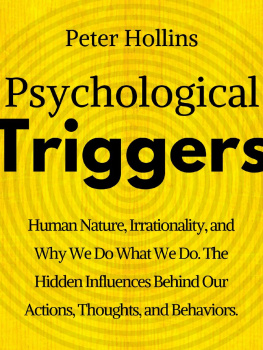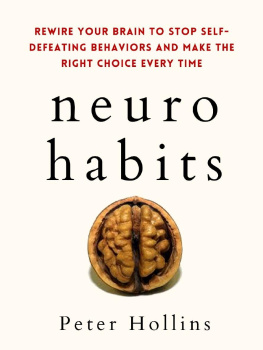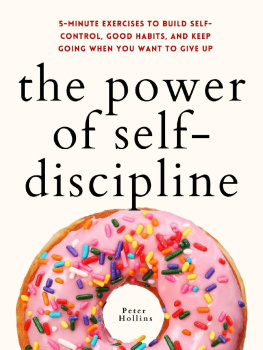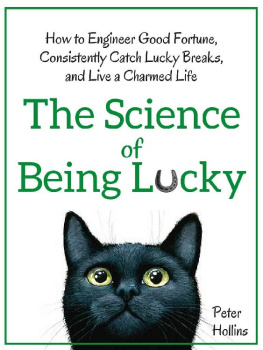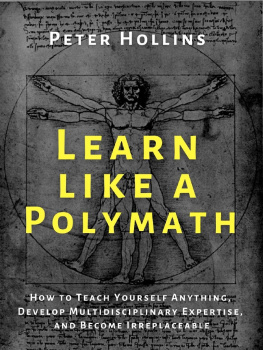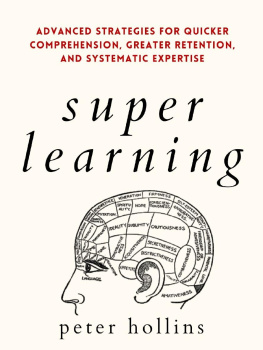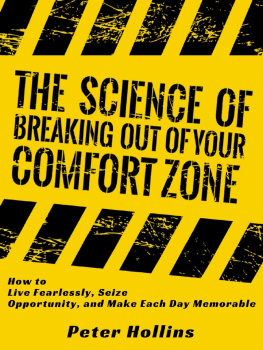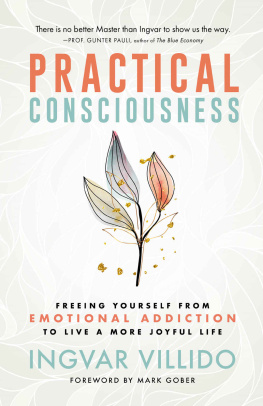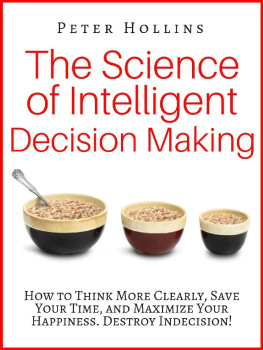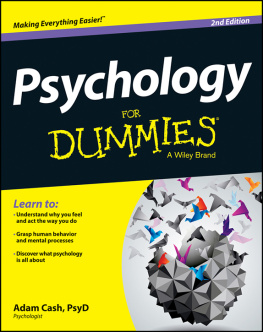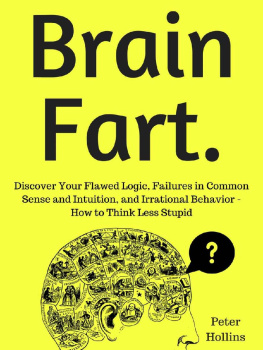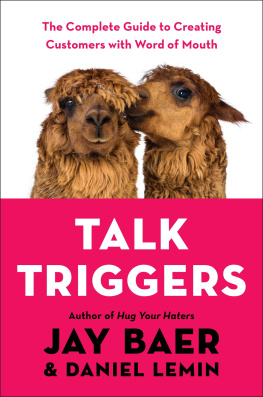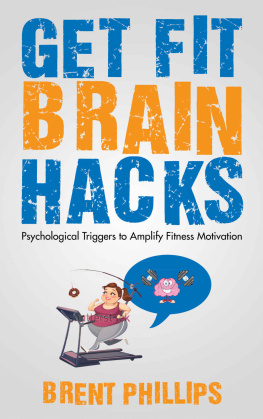Table of Contents
Psychological Triggers:
The Hidden Influences Behind Our Actions, Thoughts, and Behaviors. Human Nature and Why We Do What We Do.
By Peter Hollins,
Author and Researcher at petehollins.com
Click for your FREE Human Nature Cheat Sheet: 7 Surprising Psychology Studies That Will Change The Way You Think .
Table of Contents
Psychological Triggers
Table of Contents
Introduction
More often than wed like to admit, we act against our own interests. Just looking at your current day or week, how many times have you chosen to engage in something at your own expense, knowing that its not what you should be doing? You may even be doing it right now by reading this!
Maybe thats not you. You might be thinking, Nope, not me. Im as logical and rational as they come! That might be true, but you are still human and subject to human impulses.
Consider the following. Youve been texting or chatting with someone that youre romantically interested in. Things appear to be going well. In fact, youve made jokes about visiting Europe together in the summer. However, suddenly, they disappear from sight and, for all intents and purposes, go radio silent on you. Do you rationally and logically conclude that they have lost interest and immediately move on, or do you flail about, wondering if they got hit by a hurricane that prevented them from replying to you?
Does something about your interest being relatively unavailable trigger something in you that makes you reach out and desire more? Might you be tempted to do impulsive, objectively unstable things to settle your uncertainty?
Lets take it one step further. You see a homeless adult begging on the sidewalk. You might be able to look past this, depending on how accustomed you are to such sights. You might even be able to ignore it completely. Now replace that adult with two children, both blind. They are crying for their mother, who they claim was taken from them, leaving them to fend for themselves. To boot, they have a tiny kitten with them, who is meowing loudly out of hunger. Its quite a heart-wrenching scene.
Do your feelings change based on the emotions that such a scene evokes? Do you feel some sort of natural impulse to ease this groups suffering based on sympathy or pity?
In both of these circumstances, you probably made up your mind at first and then flipped the opposite way once your emotions were put into play. These are the small ways in which we are pushed and pulled in our daily lives. For lack of a better term, we can refer to them as psychological triggersthings that tug on our heartstrings and other instincts and demand action. They create impulses in us to act immediately and often in irrational ways. They are the all-too-human ways of leaping before looking, and theyve been bred into us for thousands of years. More often than not, and certainly more than often than we would like to admit, they are dictating our actions.
You may not think much of them, but once you begin to realize just how widespread and common psychological triggers really are in your life, you may even begin to question whether or not you even have free will. The above examples were about emotions and emotional arousal. When our minds are clouded with rage or fear, its clear that we seek fast action, not accurate or even smart action.
Youll see this pattern repeated in just about every area of your life. Thats because psychological triggers can be just about anything, from the people around you, the environment you inhabit, our natural human instincts and biological drives, and, yes, every single emotion.
Philosophers have often wondered about the nature of our decisions. Some posit that our fates are preordained and that we dont really have free will. Scientists prefer to propose that we are products of our environments or past experiences. Psychologists have observed that people sometimes act first, then create justifications for their actions after the fact. So why do we do what we doreally?
Thats what I sought to research and discuss in this book. Our conception of free willthe fact that we can make decisions in a vacuum despite our circumstancesdoes it exist? Or are we inevitably affected and triggered by external and subconscious circumstances, even those that arent present and havent been for many years? The former is certainly more attractive, but unfortunately, most signs point to the latter. Therapists are thrilled at this because thats their bread and butter, but what does it mean for the rest of us?
Humans can be said to be an inventory of experiences that judgments are made from. Youll be able to pick out and identify some of what happens in between experiences and judgmentsthe perceptions, triggers, and emotions that make us who we are. Psychological triggers may dictate your life, but at least we can learn to insulate ourselves against some of the more irrational and self-defeating impulses we all have.
Chapter 1. Introduction to Psychological Triggers
How do we go astray in our lives? What leads us to make questionable or bad choices? What causes us to pursue erroneous lines of thought that result in faulty conclusions?
Most of the time in our lives, we generally know what we should be doing. We even know what we shouldnt be doing. But why arent we partaking in what we know is good for us and avoiding what we know is bad? Are we just piles of impulses instead of a functional brain?
Why do we act against our own interests so frequently? The answer is psychological triggers, and thats what this book serves to investigate.
We live under the pretense that all humans, were told, have free will. The principle of free will declares we make our own choices under our own discretion, independently of the influence of outside factors or the requirements of the rest of the world.
In reality, we have much less control over our own decisions and actions than we believe. We dont have true free will. Instead, we are composites of psychological triggers that dictate our decisions and regulate our emotions. Of course, we are capable of making rational decisions, but for most of our recorded (and unrecorded) history, that hasnt been whats kept us alive and thriving.
Its impossible to define or even count how were affected by factors we dont control or are aware of. So many of these triggers accumulate in the subconscious throughout the course of our lives without any sense of rhyme or reason. These forces are so powerful that they make logic and rationality the exceptions, not the rule.
Even though psychological triggers come from the brain, they actually serve to bypass active thought. They force us to make decisions from a reactionary, emotional standpoint, away from the logic and reasoning the brain supposedly supports. Psychological triggers produce thoughts and behaviors that often result in dreadful decisions and results.
How can psychological triggers stoke the ego, seduce people away from rational thinking, and produce disastrous consequences? Theres a fairly recent episode that was almost particularly illuminative about the driving forces behind peoples behavior. This is what can happen when we are driven by our impulses and triggers instead of rational thought.
In 2017 a young entrepreneur had a vision for a two-day music festival. He put together a social media campaign, promising superstar performers, gourmet food, and luxurious accommodations for everyone who bought a pass. The festival ran into a lot of snags in the planning stage. At one point some advisors floated the idea of postponing the festival for a year so they could get their ducks in a row and execute on a great show. And for a while, the organizers agreed to make that the plan of action.

